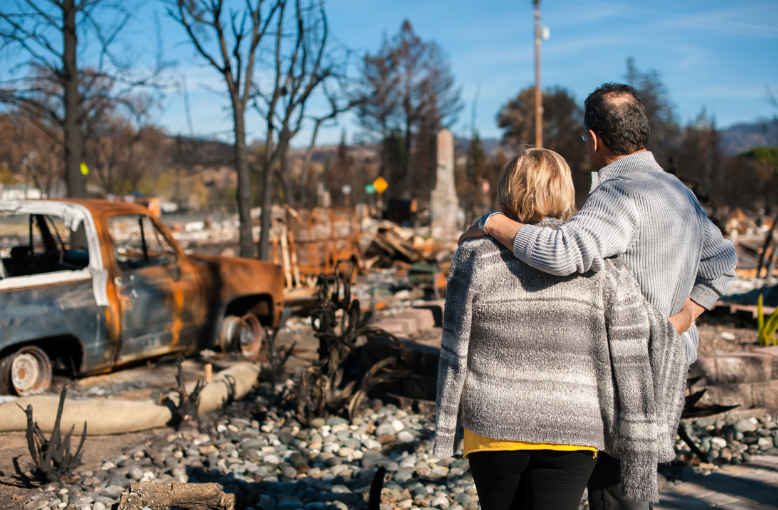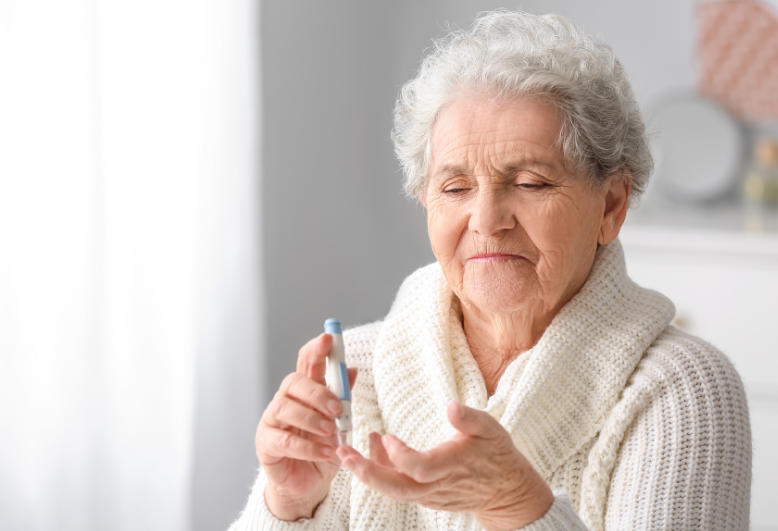
Current Readiness of Older Patients for Emergencies
Older patients may feel like they are ready and prepared to handle an emergency situation, however, a poll showed that many lack the preparation needed to manage one [1]. For instance, some older patients have not signed up for notifications that a natural disaster or a health emergency is happening [1]. This can leave them vulnerable during emergencies and can prevent them from preparing correctly. Moreover, the poll showed that most older populations have not prepared an essential kit in case an emergency occurs [1]. Furthermore, patients who need electricity to power their healthcare devices often lack backup generators to keep their devices powered during an outage [1]. This is concerning because older patients often rely on various healthcare devices to manage their conditions. Therefore, it’s important that digital health solutions assist older patients in preparing for disasters.

Preparing Older Patients for an Emergency
First, it’s important that electronic portals keep patients updated when their local community is facing an emergency. For instance, during a public health emergency, patients should be alerted to the next steps needed to protect themselves. Furthermore, older patients should have at least a 3-day supply of their medicine in their emergency kit [2]. Healthcare providers can alert their patients on what is specifically needed in each patient’s emergency supply kit. They can also provide reminders if medicines become expired over time. Portals should also ensure their patients can easily assess their care plan, a list of contact information for their doctors, and any important information about their allergies, insurance, and even caregivers [2]. This should also be available in a paper copy so patients can access this information during an outage.

It’s also important that patients are equipped with a weekly supply of food and water, as well as batteries to power their healthcare devices [1]. Furthermore, it’s important for older patients to create an evacuation plan with their family members during different emergency situations. Older patients who have serious conditions need to be accounted for in case they require transportation. Furthermore, creating an emergency fund for patients so they can afford to relocate during an emergency is also crucial during an emergency. For instance, a quarter of older patients reported that paying to stay at a place for a week would be difficult [1]. It’s important that doctors and caregivers provide patients with personalized options to prepare them for an emergency, and offer various resources to fill in the gaps in their emergency preparation plan.
Utilizing Digital Health Solutions in Emergency Situations
Continuing to provide care during a natural disaster or a public health emergency is crucial for older patients. Unfortunately, both doctors and patients may be unable to make it safely to the hospital during emergency situations. This means that telehealth will become increasingly important during emergencies since it can help doctors see their patients remotely [3]. Telehealth allows patients to move in-person visits online instead of rescheduling them [3]. This allows older patients to continue their care safely from their homes. Furthermore, this requires health portals to be updated and for patients to be aware of how to access telehealth resources. Unfortunately, telemedicine relies on access to electricity and the Internet. With the increased likelihood of climate-related disasters [3], it’s important that providers adopt more digital health solutions that can assist patients when they lack power, internet, or transportation.

Another way that digital health solutions can assist patients and doctors during emergencies is by providing various healthcare professionals a way to access patient data regardless of the health institution they go to [4]. This is especially crucial during a disaster because emergency personnel may have to treat patients with limited knowledge of the medication they’re taking, their allergies, and even serious health conditions that need to be managed. Therefore, it’s important that digital health technologies promote interoperability, especially during emergencies when patients may not have the ability to see their primary care physician. Overall, the healthcare industry was able to promote and adopt increased telehealth solutions due to the pandemic. However, remote care devices still need to be prepared for the lack of electricity, internet, and transportation.
HITS
HITS’ agency culture and mission facilitate customer and human-centered design. We tailor software and project management support products to meet our customer’s needs. Furthermore, HITS puts the “soft” in “software” development. We analyze functional requirements to ensure all needs are properly adjudicated to be included in the software. This allows clients and customers to have peace of mind that their needs are heard and acted upon. Finally, HITS expects all staff to incorporate customer experience-related best practices. Therefore, we offer incentives for excellent customer experience performance and team collaboration.
References
- https://ihpi.umich.edu/news/many-older-adults-arent-fully-prepared-emergency-situations-poll-finds
- https://www.cdc.gov/aging/publications/features/older-adult-emergency.html
- https://www.healthcareitnews.com/news/when-next-storm-hits-telehealth-could-be-lifesaver
- https://www.thelancet.com/journals/lancet/article/PIIS0140-6736(23)00564-0/fulltext